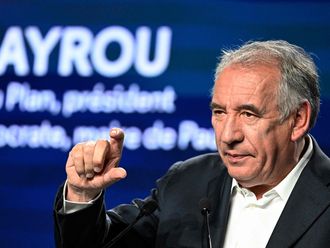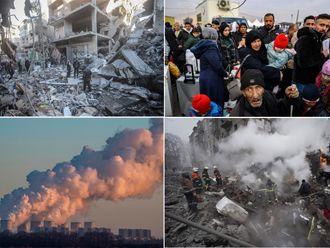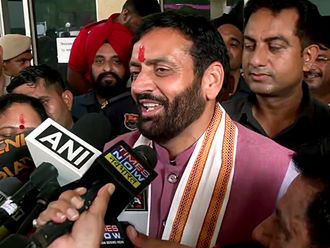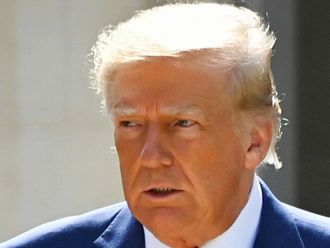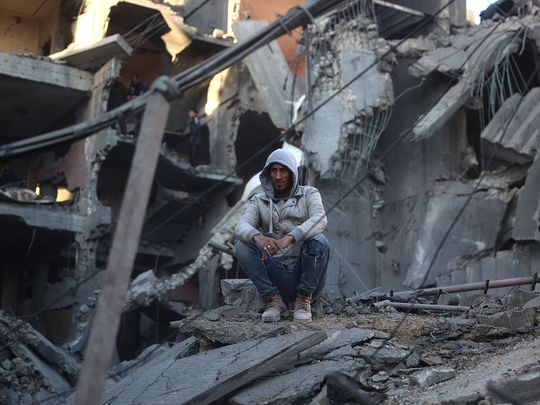
Social media censorship is a global phenomenon, but the war on pro-Palestinian views on social media represents a different kind of censorship, with consequences that can only be described as dire.
Long before the current devastating war on Gaza and the escalation of Israeli violence and repression in the occupied West Bank, Palestinian and pro-Palestinian voices have been censored.
Some date the censorship to an agreement in 2016 that, according to the Israeli government, sought to “force social networks to remove content that Israel considers to be incitement.”
This was translated, almost immediately, to the shutting down of thousands of accounts and the barring of many social media influencers, with the hope of slowing down the vastly growing pro-Palestinian tendencies in all Meta-linked platforms.
Censoring content
The war on Gaza, however, has escalated the censorship. In a report submitted to the United Nations Special Rapporteur on Freedom of Opinion and Expression, Human Rights Watch noted that the documented restrictions on freedom of speech “undermine the fundamental human rights to freedom of expression and assembly.”
The censorship became so sophisticated and increasingly involved a direct Israeli role. To ensure that ‘offenders’ to Israeli sensibilities were eliminated in large numbers, Meta began censoring content.
But Meta was not the only social media network involved in this practice. On Nov. 17, 2023, the X platform (previously known as Twitter) declared that users who write terms like “decolonisation” or similar expressions would be suspended.
One year later, the social media platform Twitch followed suit by revising its ‘Hateful Content Policy’ to include “Zionist” as a potential slur.
These decisions, and many others, directly impair the freedom of speech and press. The word ‘genocide’, for example, is not a swear word, but a common term, embraced by numerous countries around the world, accusing Israel of carrying out acts of genocide, meaning the “systematic destruction of a group of people because of their ethnicity, nationality, religion, or race”.
Under pressure from many countries, and after presenting a powerful case at The Hague, South Africa managed to compel the International Court of Justice to investigate Israel’s acts of genocide in the Gaza Strip in violation of the 1948 Genocide Convention.
In other words, this is not a matter for Mark Zuckerberg or any other social media company to decide, based on direct consultations with those carrying out the mass killings in Gaza.
The same applies to Zionism, an ideologically situated political movement, that traces its history to 19th-century Europe, thus, neither to a specific race nor a religious text.
While many are, rightly, outraged by the fact that this kind of widespread, and growing, censorship directly challenges the main tenants of democracy, the actual harm for Palestinians is much bigger.
According to a November 2024 report by the Sada Social Center for Digital Rights, the surge in digital violations targeting Palestinian content could not come at a worse time.
Tightly controlled social media
According to the organisation, “Meta platforms accounted for the largest share of violations at 57%, followed by TikTok at 23%.” YouTube and X follow at 13 and 7% respectively.
This censorship, according to Sada, includes the shutting down of WhatsApp accounts, another Meta-owned platform that is also tightly controlled.
Unlike most of us, Palestinians in Gaza use these platforms to communicate with one another, to know who is dead and who is alive, and to raise awareness of certain massacres, often taking place in isolation, especially in the northern Gaza Strip.
Regarding northern Gaza, Sada Social spoke of a ‘digital blackout’, which has compounded the horror of that region — famine, mass killing, destruction of all hospitals, etc.
In the specific case of social media censorship in Gaza, lives are literally being lost as a result of politically motivated decisions.
HRW was one of many rights groups that have routinely spoken about the ‘systematic censorship’ by Meta. A December 2023 HRW report identified the following recurring patterns of censorship: removal of content, suspension of pro-Palestinian accounts, the reduction of visibility, known as ‘shadow-banning’, the restrictions on engagement, and the deliberate misuse of policies on hate speech and graphic content.
The danger of this kind of censorship is multilayered. It is a direct threat to one of the most basic freedoms guaranteed under the law in any democratic society. In the case of Gaza, the censorship takes a dark, deadly turn as it could make the difference between people dying under the rubble of their homes or receiving assistance.
Dr Ramzy Baroud is a journalist, author and editor


